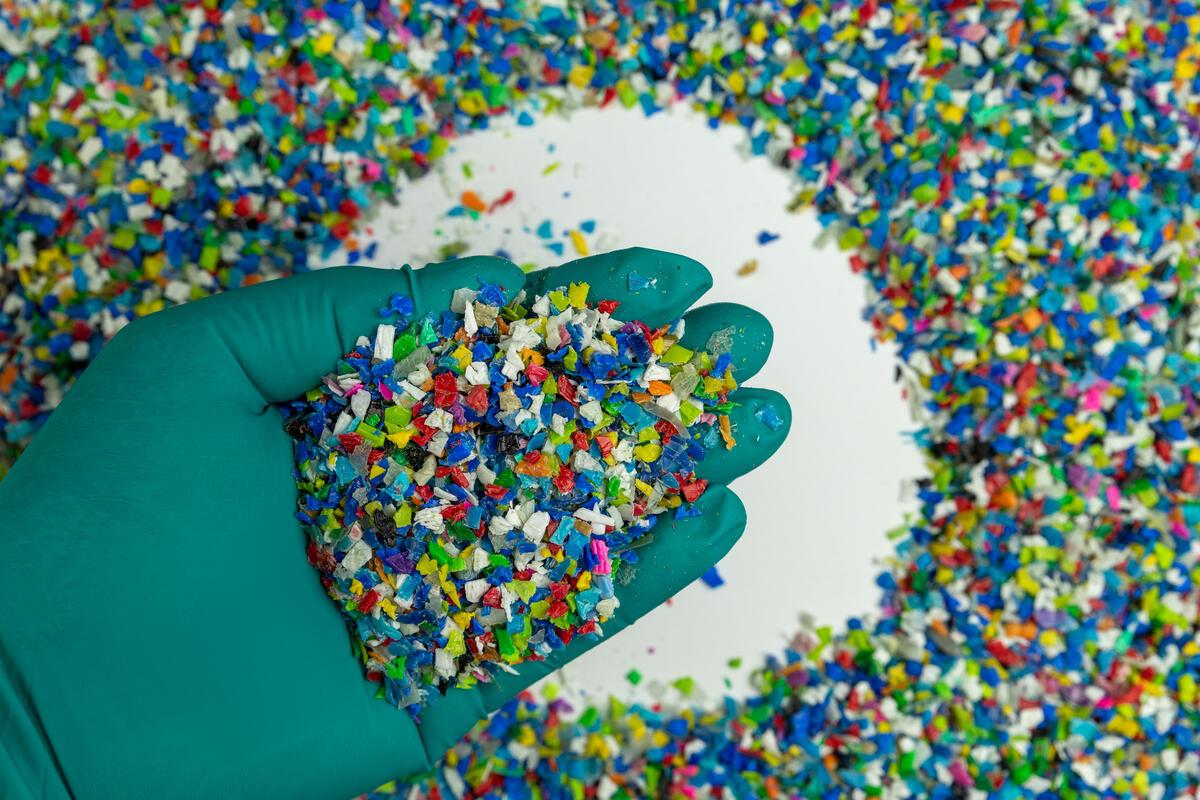2023 marks the European plastics industry putting a stake in the ground by publishing a circular and net-zero roadmap for its industry. So far, the public discussion about the pros and cons of plastics has been led by environmental organisations demanding a reduced use of plastics, replacement of plastics by other materials or even a ban of plastics. The plastics industry is now speaking up with concrete proof points to back their targets and goals. This may be the appropriate occasion for a plastics producer to contribute to the discussion.
Looking at the industry roadmap, I believe the most important observation is that that there is no “us” and “them”. I see us, the industry, as part of the solution rather than being the problem that must be done away with. We are all in this together and, as an industry, we fully support the EU’s transition to climate neutrality, circularity, driving lifecycle emissions to net-zero – and ultimately the EU Green Deal.
Our 1.5 million employees and their families have the same vision as everybody else in our society. My colleagues, including myself, are part of the solution. Their skills have given us a material that has contributed significantly to our society’s well-being. Plastics keep us mobile, reduce fuel consumption, keep our homes warm and our food fresh and clean. Our engineers’ skills will ensure that we maintain our quality of life while at the same time minimise our impact on the environment.
Our industry’s roadmap is based on three pillars.
We make plastics circular, e.g., using a broad range of recycling technologies.
We help drive lifecycle emissions to net-zero, e.g., by maximising energy efficiency and by using low-carbon fuels.
And we foster a sustainable use of plastics, e.g., by managing risks in operations and by collaborating with value chain partners.
On our way to achieving net zero emissions by 2050, we have challenged ourselves at INEOS Styrolution to save 1 million tonnes of CO2e in 2030. We also target to sell 500kt of INEOS Styrolution ECO products in 2030 and we guarantee 100% regulatory compliance with conventional and ECO products.
Our roadmap to a circular, low-carbon economy is based on the following five steps:
1. Circularity: We close the loop at the end-of-life phase of our products with appropriate mechanical and advanced recycling solutions.
2. Fuel switching: Today, a significant part of our electricity consumption is already based on renewable energy.
3. Feedstock switching: In a circular economy, waste is our new feedstock. We also offer the integration of renewable feedstock as a replacement for traditional fossil feedstock.
4. Optimisation: We have defined a programme of measures to reduce scope 1 emissions at our production facilities. The first phase of investments is taking place until 2030.
5. Carbon capture, storage and offset: Together with the INEOS Group, we are looking at new technologies such as carbon capture and utilisation as well as using increasing amounts of hydrogen in our furnaces to reduce carbon emissions. The use of carbon offsets for residual emissions is our last option.
Our CEO Steve Harrington summarises INEOS Styrolution’s activities as follows: “Reaching carbon neutrality is a deliberate and ambitious commitment. Our investments are geared towards harnessing our expertise and technology, and at the same time, reducing our carbon footprint.”
Today, we proudly look back at the milestones we have achieved so far. We have introduced sustainable ECO solutions for all our product lines – based on recycled materials and on renewable feedstock. All these solutions offer a reduced environmental footprint, and they are drop-in solutions making it very easy for our customers to shift to the new materials without any further investment into new machinery or new production processes.
We work with partners such as Indaver, a leading European waste management company, to increase the use of recycled feedstock in our production and we have invested into mechanical and advanced recycling, which we believe will significantly reduce our carbon emissions, reduce waste, and keep these valuable materials in use for longer. We are working on a joint project with EGN and Tomra in Krefeld, Germany to recycle post-consumer polystyrene waste into food contact polystyrene. We are convinced that achieving food contact quality based on a mechanical recycling process is a game changer for food packaging.
Finally, being a member of the INEOS Group, gives us access to renewable power reducing CO2 emissions from our sites. Most of our sites in Europe have shifted to renewable electricity and we are now working to move our plants in Asia-Pacific and the Americas towards the use of renewable energy.
These achievements make me very confident that we will contribute to our industry’s objectives, meet the expectation of our society, and preserve our environment.

